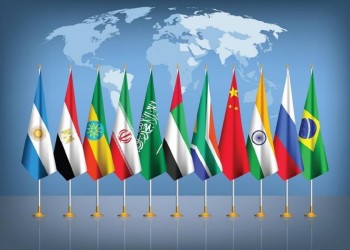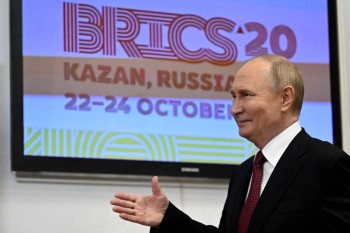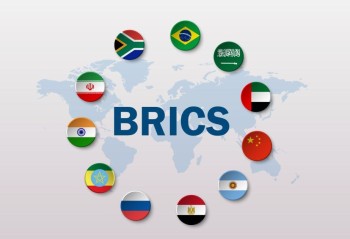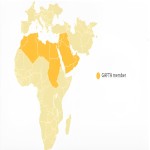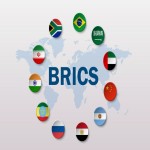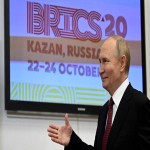The digital economy has emerged as a pivotal force within the BRICS nations—Brazil, Russia, India, China, and South Africa. These countries have acknowledged the transformative potential of the digital revolution and are actively pursuing the opportunities it presents. The digital economy is crucial for driving economic growth and development, fostering technological advancements, promoting innovation, and creating new avenues for economic participation. The BRICS nations have taken proactive steps to harness the potential of the digital economy by implementing policies and initiatives to support its growth. This article aims to provide a thorough analysis of the current state, challenges, and future outlook of the digital economy within the BRICS framework.
“The digital revolution offers immense opportunities for the BRICS countries to leapfrog traditional development paths, drive innovation, and create new engines of economic growth,” states Jin Liqun, President of the Asian Infrastructure Investment Bank (AIIB).
The BRICS countries envision a digitally connected and inclusive economy that fosters sustainable development and enhances the quality of life for their citizens. They recognize the digital economy's potential to drive innovation, create new jobs, improve productivity, and enable digital inclusion. Members aim to leverage emerging technologies, such as artificial intelligence, blockchain, big data analytics, and the Internet of Things, to transform traditional industries and establish new digital sectors. They prioritize the development of digital skills, digital infrastructure, and cybersecurity frameworks to ensure a robust and secure digital ecosystem.
Significant progress has been made in the digital economy across BRICS nations, with notable advancements in e-commerce, digital payments, IT services, and digital infrastructure. Additionally, various policies and regulations have been implemented to create a conducive environment for digital entrepreneurship and innovation.
E-commerce has revolutionized the retail sector, allowing businesses to reach broader customer bases through online platforms and e-commerce solutions, thus providing consumers with a convenient and diverse shopping experience. Furthermore, BRICS countries have witnessed a surge in digital payment solutions, including mobile wallets, online banking, and digital remittances, facilitating financial inclusion and reducing reliance on traditional cash transactions.
The IT services sector has also grown significantly in BRICS nations, which have become key outsourcing destinations, providing software development, IT consulting, and business process outsourcing services to global clients. Developing robust digital infrastructure—such as broadband connectivity, data centers, and cloud computing facilities—is essential for enabling the digital economy. BRICS countries have invested in expanding their digital infrastructure to meet the increasing demand for digital services.
Statistical data indicates a steady increase in the digital economy's contribution to the overall GDP of each nation. For example, Brazil's e-commerce market is projected to reach $47.64 billion in 2023, with the number of internet users exceeding 167 million in recent years. The country has also seen a rise in digital entrepreneurship, with innovative startups emerging across various sectors. Similarly, Russia has invested significantly in its digital infrastructure, focusing on improving broadband connectivity and expanding high-speed internet availability.
India has established itself as a global hub for IT services, contributing around 8% to the country’s GDP. The government’s Digital India initiative has been pivotal in promoting digital literacy and expanding internet access to remote areas. China, recognized for its thriving digital economy, has experienced remarkable growth in e-commerce, with online retail sales exceeding $2 trillion in 2022, making it the largest e-commerce market worldwide. South Africa has also improved its internet connectivity and digital infrastructure, laying a solid foundation for future digital advancements.
Current projects and initiatives among BRICS countries in the digital economy aim to foster collaboration, knowledge sharing, and technological innovation. These initiatives, along with promising statistical indicators, suggest a positive outlook for the digital economy's future within the BRICS framework. Examples include the BRICS Smart Cities Collaboration, BRICS Digital Payments Cooperation, and the BRICS Information Sharing and Exchange Platform, which promotes cooperation in data sharing and analytics, as well as the BRICS Innovation Network, facilitating collaborative research and development efforts.
In June 2022, leaders at the recent virtual BRICS summit in Beijing signed several landmark agreements aimed at strengthening economic cooperation within the bloc. These agreements include a Digital Economy Partnership Framework Agreement and initiatives focused on trade, investment, and sustainable development. The five countries will promote the exchange of green, low-carbon technologies and new business models, while facilitating technology transfer in clean technologies.
“This is an important outcome document that is forward-looking, inclusive, and action-oriented, serving as an institutional guarantee for future cooperation,” remarked an official, commenting on the achievements of the recent BRICS leaders' meeting.
Despite these advancements, the BRICS countries face challenges in fully realizing the digital economy's potential. A primary challenge is the digital divide, characterized by disparities in internet access, digital skills, and technological readiness across different regions and socio-economic groups. Inadequate digital infrastructure and connectivity in certain areas hinder widespread digital adoption. Additionally, concerns regarding data privacy and cybersecurity necessitate effective policies and regulations to protect user information and mitigate cyber threats. Furthermore, BRICS nations must address regulatory and legal frameworks to facilitate cross-border data flows and e-commerce transactions.
The future of the digital economy within BRICS countries appears promising. Ongoing efforts to bridge the digital divide, improve digital infrastructure, and enhance digital skills will contribute to inclusive growth. The development and deployment of emerging technologies will unlock new opportunities for innovation and economic diversification. Cross-border collaborations and information sharing will facilitate the transfer of best practices and expertise. As BRICS nations continue to invest in research and development, promote digital entrepreneurship, and implement supportive policies, they are likely to strengthen their positions in the global digital economy.
Consequently, the digital economy has become a vital driver of economic growth and development within BRICS countries. With their diverse economies and large populations, Brazil, Russia, India, China, and South Africa recognize the significance of the digital revolution and have taken significant steps to embrace it. BRICS members are actively working to enhance digital infrastructure, promote digital skills, and formulate supportive policies to leverage the opportunities presented by the digital economy. However, challenges such as the digital divide, data privacy, and cybersecurity need to be addressed to ensure inclusive and secure digital transformation. By capitalizing on their strengths and collaborating effectively, these countries can shape the future of the global digital economy and reap its benefits for their citizens. It is essential for BRICS to continue fostering cooperation, sharing best practices, and investing in research and development to remain at the forefront of the digital revolution and sustain economic growth in the digital age.


